India‘s large population practices several religions, although the majority professes Hinduism. This is also reflected in the numerous temples spread throughout the country.

And there is always one that stands out above the rest for some curiosity, such as the Karni Mata Temple, known as the temple of the twenty thousand rats, the Harmandir Sahib Temple, covered in gold, or, the architectural complex that concerns us today, the temples of Khajuraho, known for the erotic figures that decorate them.
Khajuraho is a small town located in central India, 600 km south of Delhi, in the state of Madhya Pradesh. The architectural complex represented by its temples, most of which are Hindu, is now composed of about 22 monuments of the 80 that it is estimated to have had at the time of its construction, in the 10th and 11th centuries AD.
It is a walled complex with eight gates that allow passage at different points within it. In 1986, UNESCO declared it a World Heritage Site.
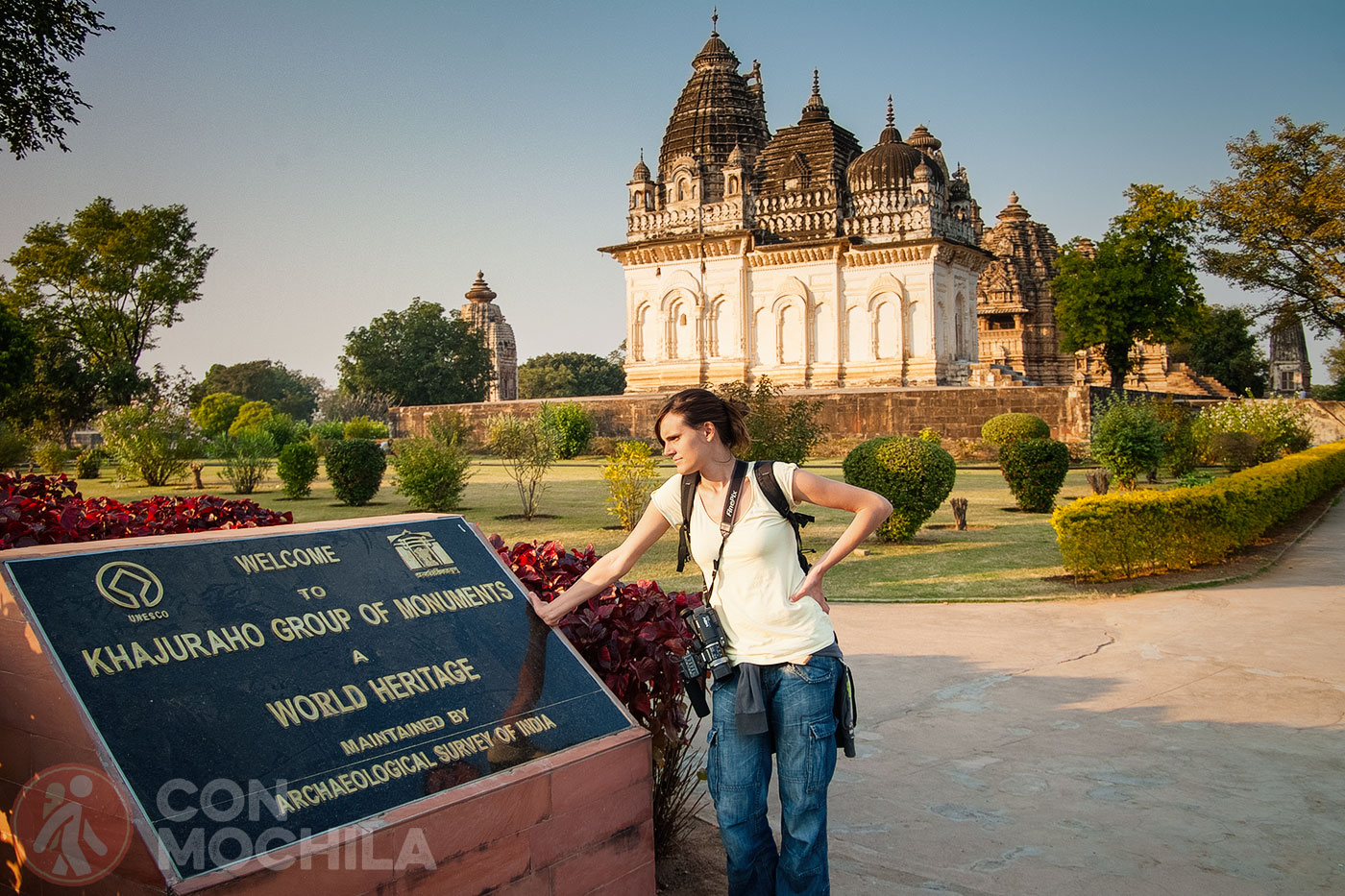
At the time of its construction, Khajuraho was the religious capital of the Chandella, a royal dynasty in medieval central India that ruled part of the country between the 9th and 13th centuries. Following various confrontations with enemy forces, this dynasty fell, and some of the temples were razed by the Muslims while others, the ones that survive today, were forgotten, hidden in the lush jungle.
Centuries later, shortly before the beginning of the British Raj, the temples were rediscovered by the British Army Captain TS Burt, guided by the local population.
This temple complex, arranged in three groups according to the location of the temples to the east, west and south, has become famous for the erotic sculptures that decorate part of its facades. They represent different scenes of explicit sex, some between men and women, others between women and some also of zoophilia.
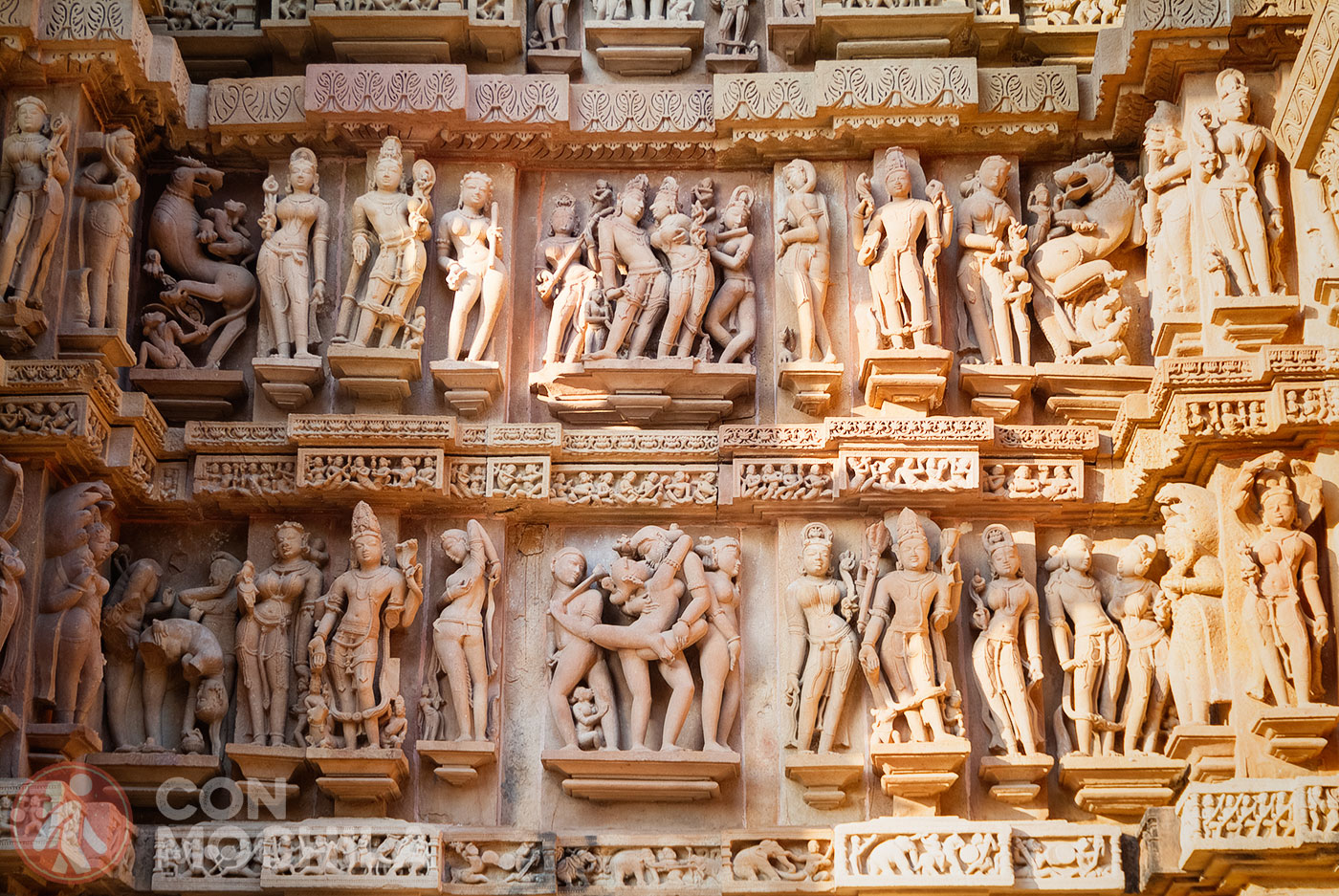
They are supposed to be images from the Kama Sutra to educate the population. Others say that they simply reflect the society of the time, which is surprising considering the conservative spirit that is supposed to be in Indian culture in this regard.
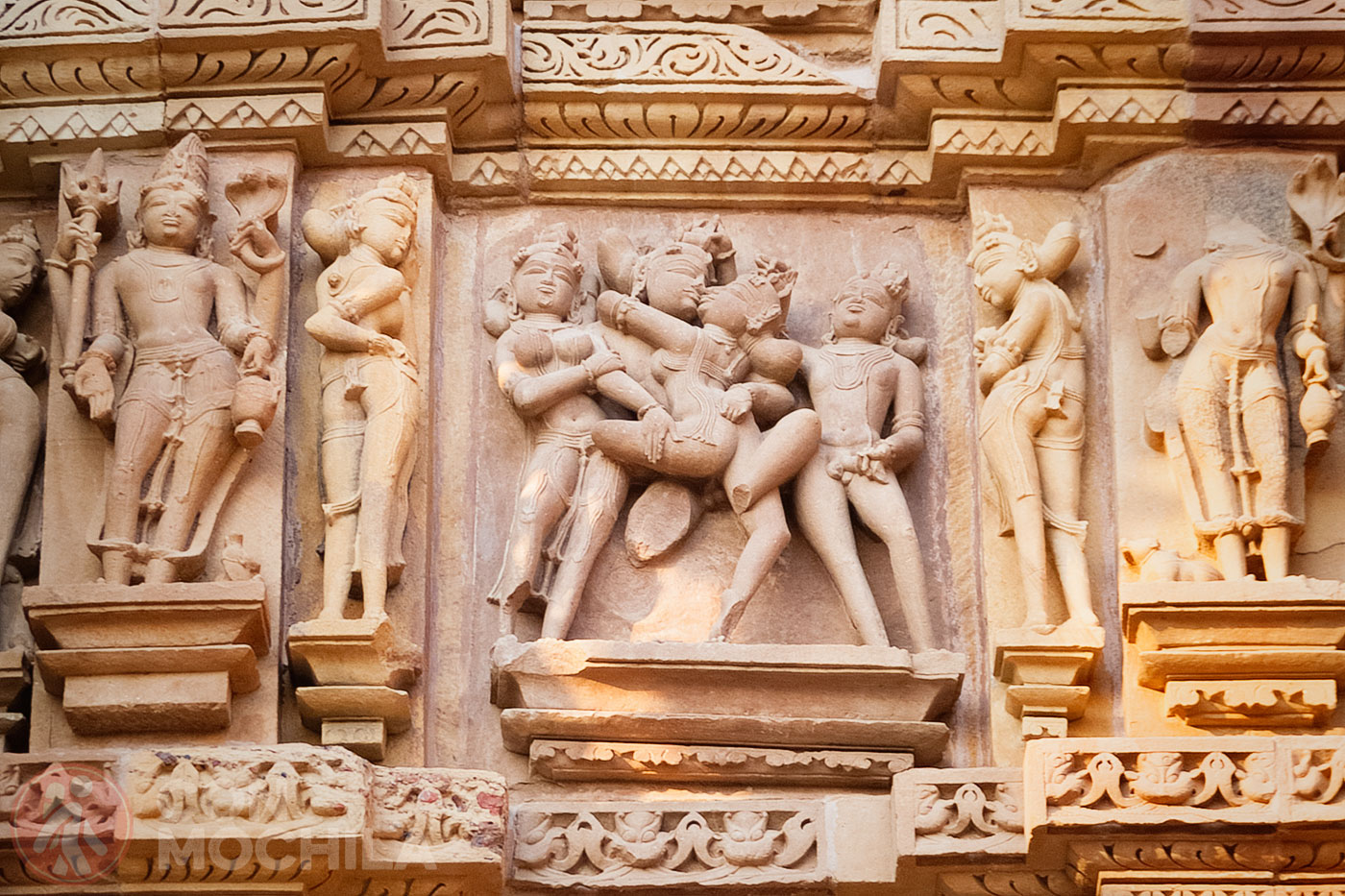
However, not all erotic figures are sexually explicit, nor do they represent the majority of the temples’ decoration. However, they are what have made it famous, and turned this group and the town of Khajuraho into a tourist destination.
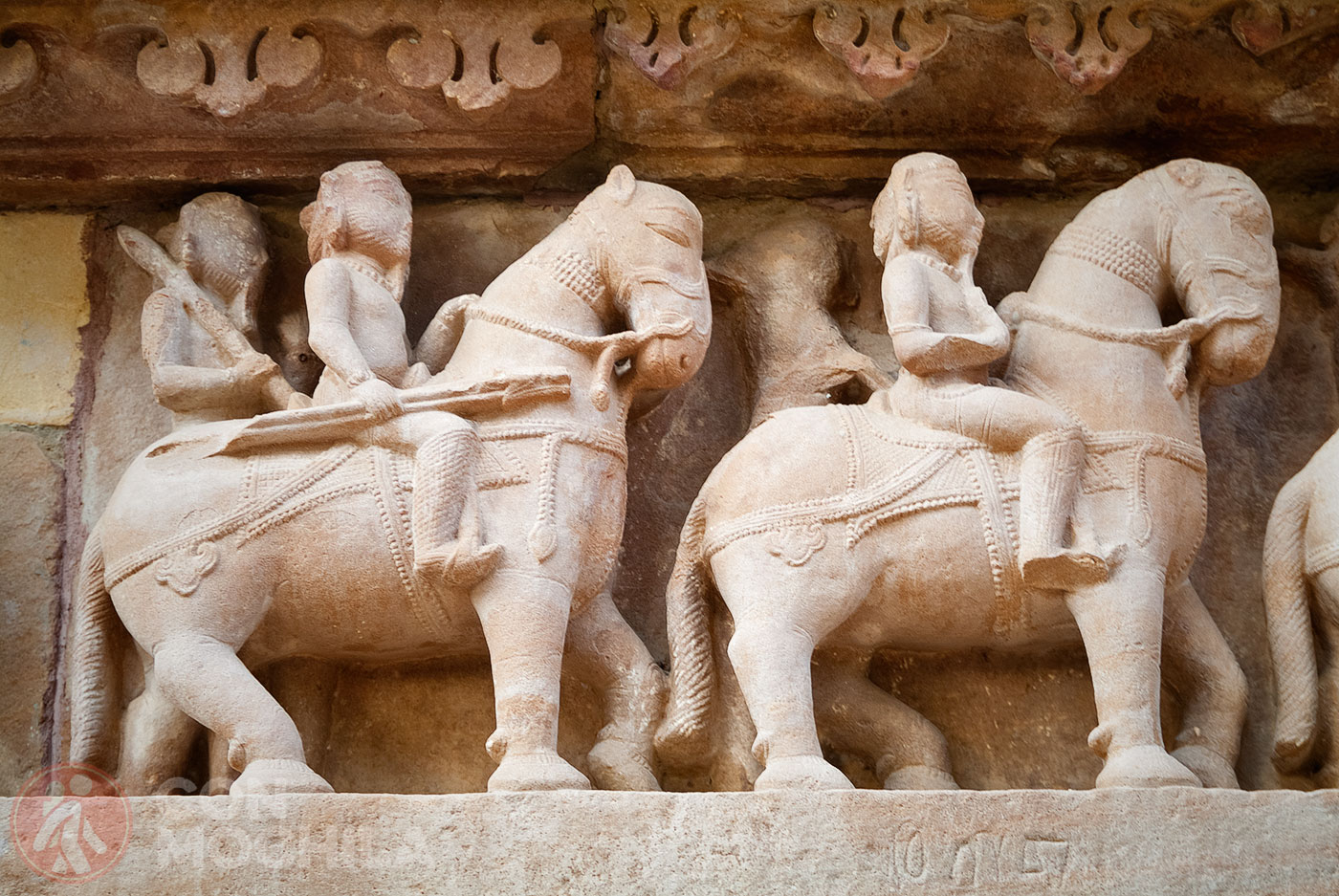
Along with these sexually explicit images, there are other representations of Tantrism, the control of the mind over the body. Other sculptures also tell us about life at court, warriors, deities, the fauna and flora of the time or simply floral or geometric motifs. As we say, the erotic figures represent a small part of the cultural wealth of the whole.
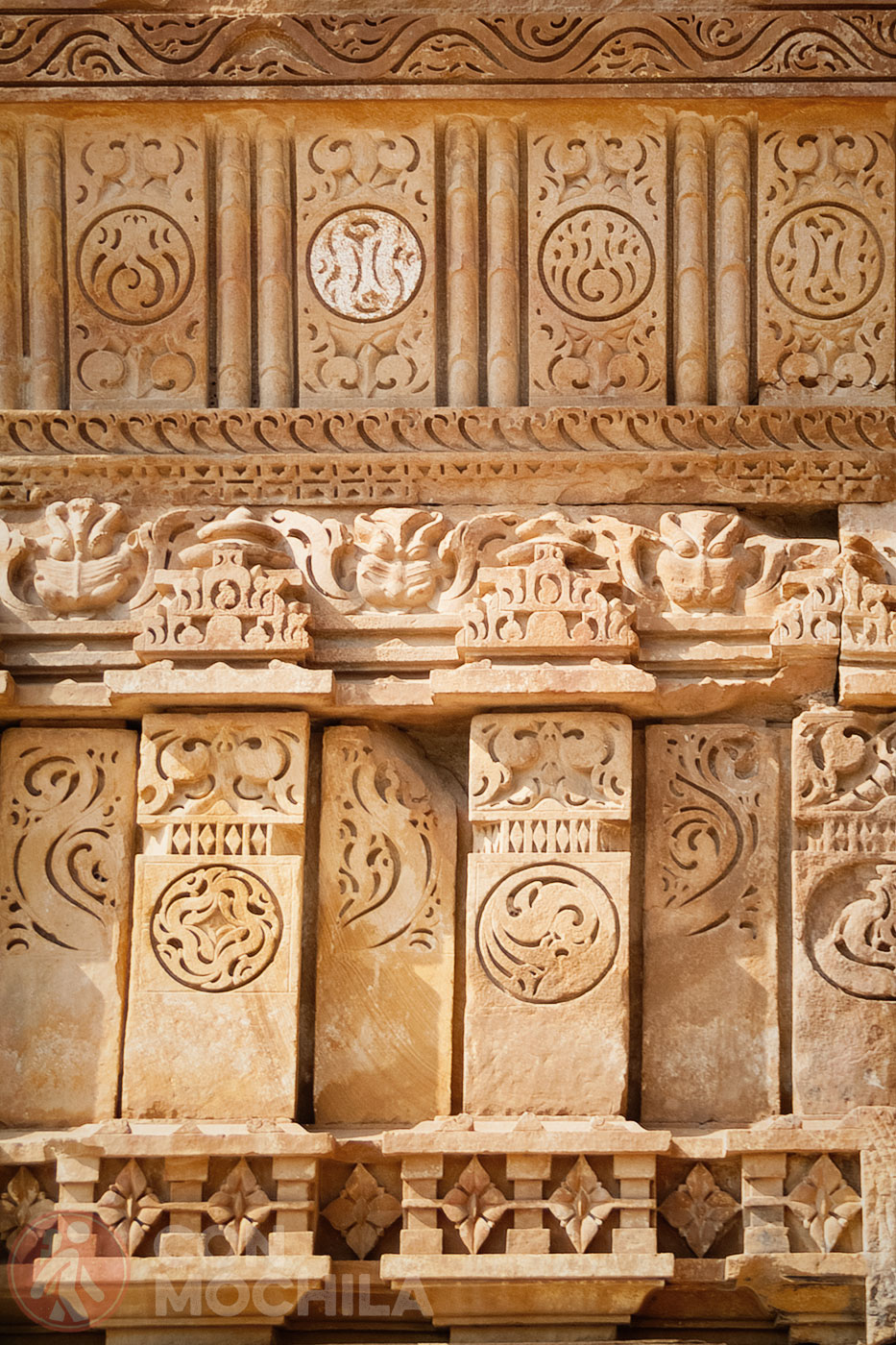
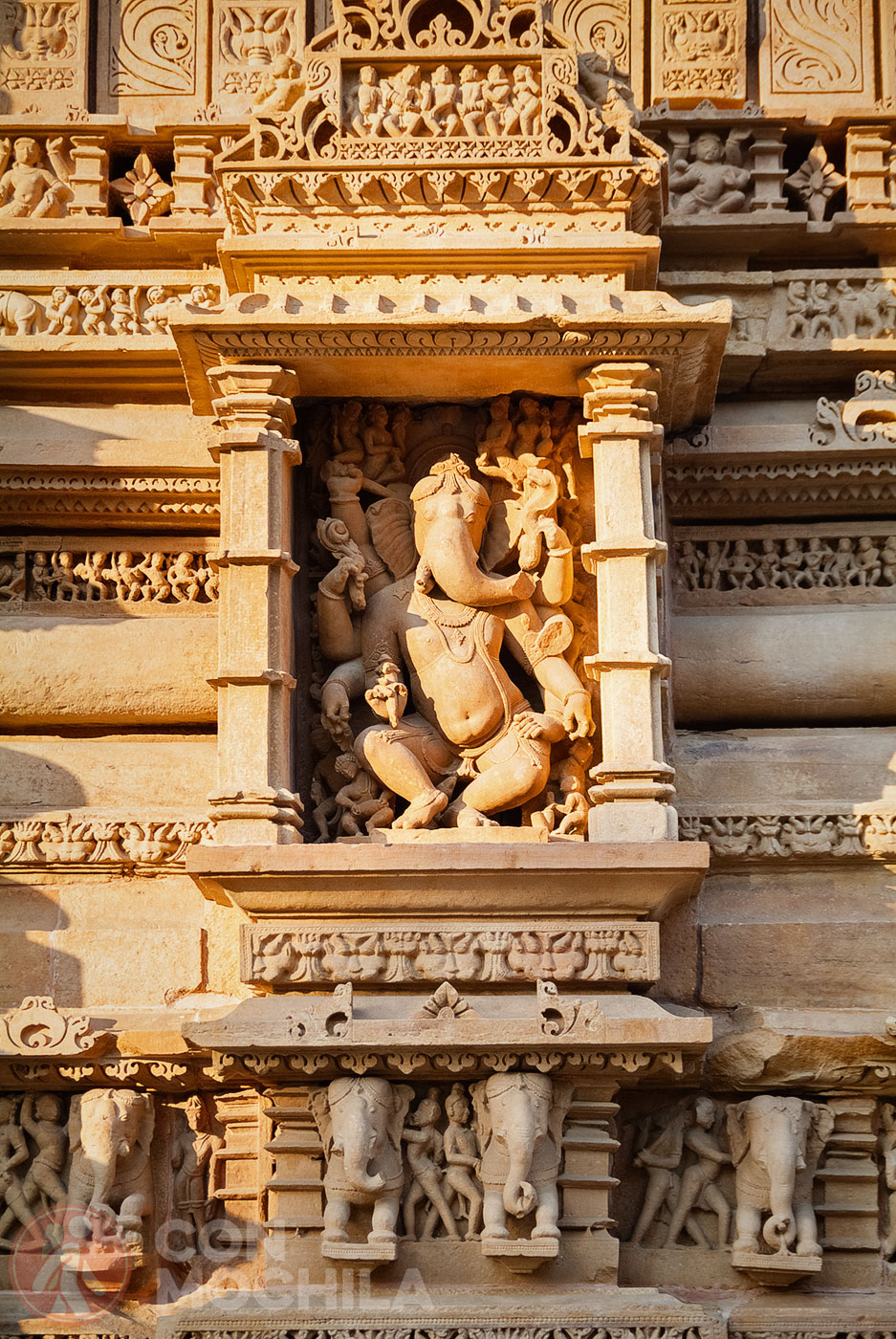
Of the three temple sites, the most visited is the western complex, where the temples are best preserved and where you can also enjoy the garden areas. There you will find three of the most interesting temples: Lakshmana, Kandariya Mahadev, and Visvanatha. Of these, we highlight one, the Kandariya Mahadev Temple dedicated to Shivam, which is the tallest with more than 30 meters high and with many sculptures.
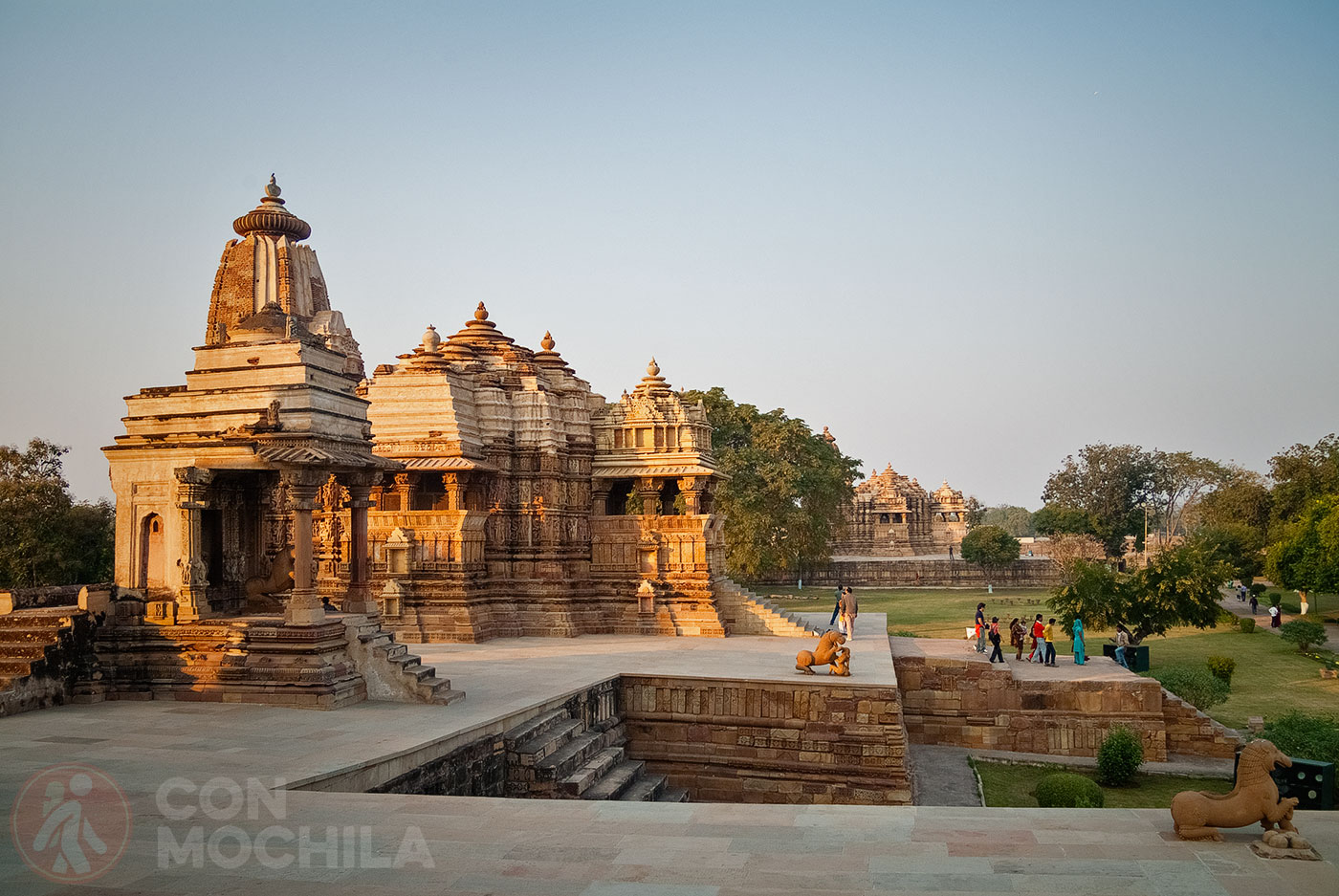
There are several tours available to visit the temples of Khajuraho; here are some so you can choose the one that interests you the most:
To reach the town of Khajuraho, where you can find accommodation, you have several options:
Beyond the weather recommendations, if you are going to travel to India in February, take advantage of the opportunity to enjoy the Khajuraho Dance Festival, a week of classical Hindu dances at the foot of the temples accompanied by exhibitions of crafts and other entertainment. In 2020, the confirmed dates for the festival are from February 19th to 25th, so mark the date and if you can, enjoy the dance in an exceptional setting.